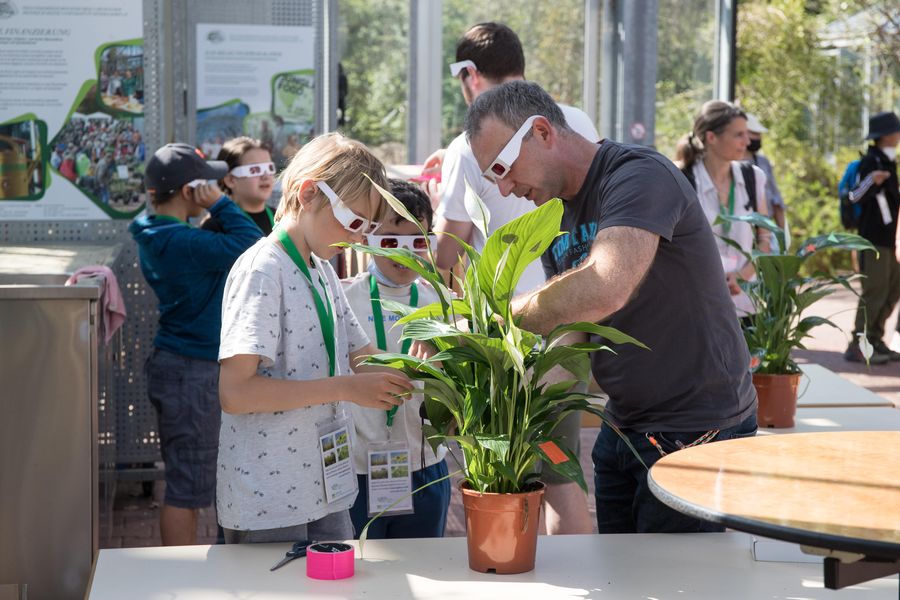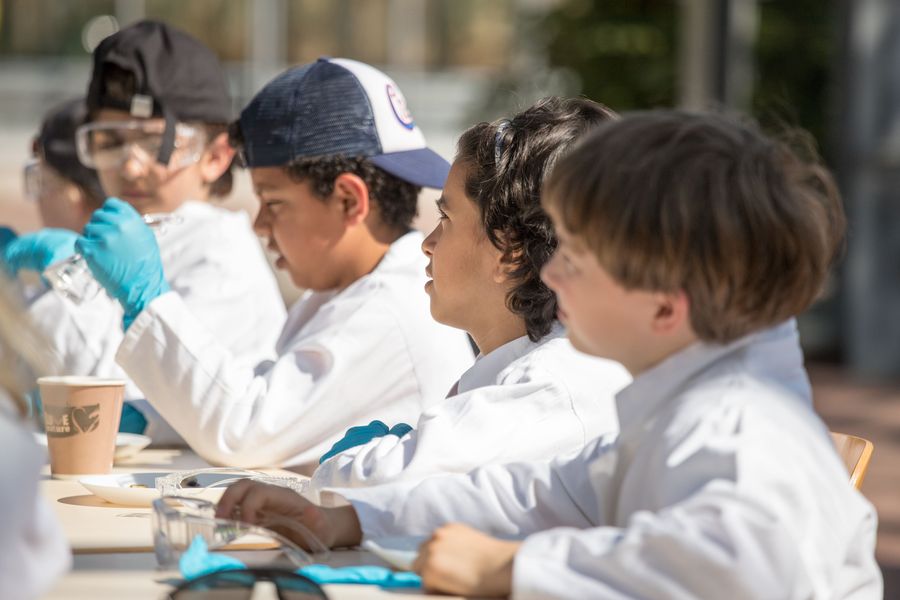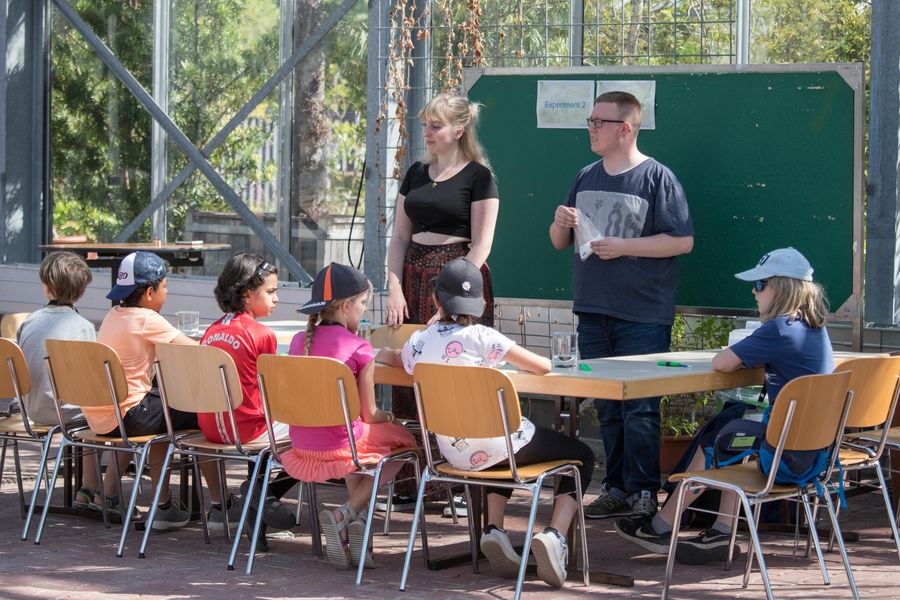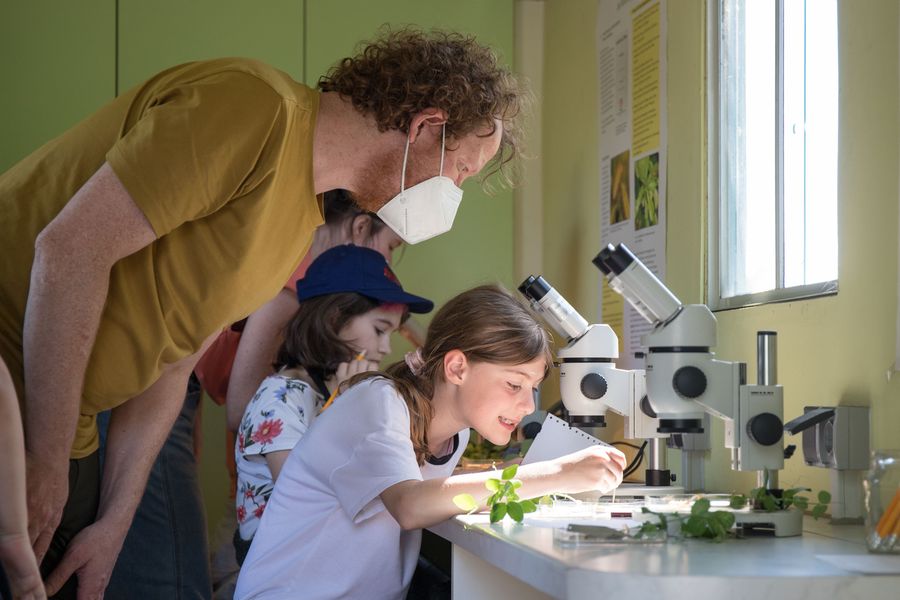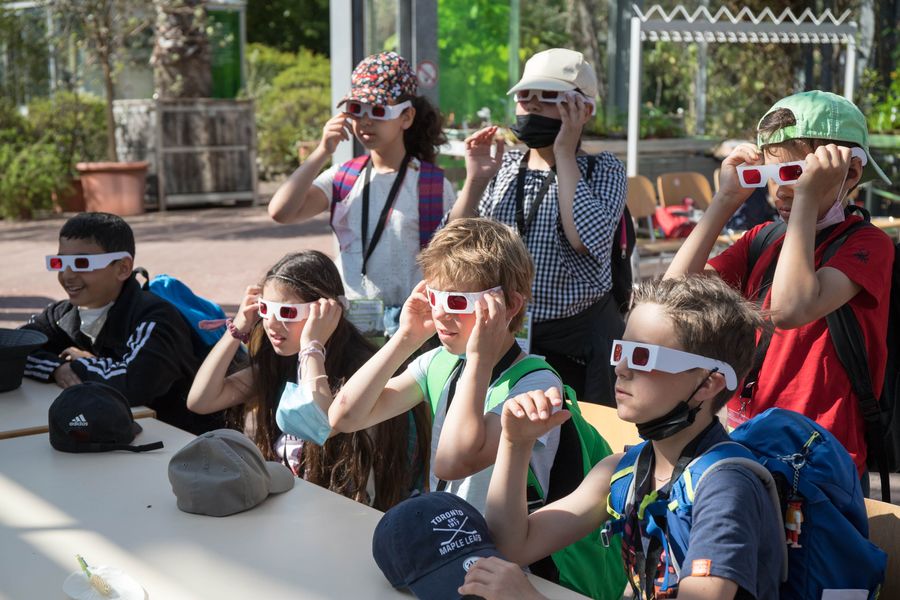Children discover the world of plant research
Every second year, the Fascination of Plants Day takes place as a worldwide initiative in May. CEPLAS, the Institute for Quantitative and Theoretical Biology and the Research and Education Team from the University of Cologne once again participated in this event with an offer for elementary schools. Four primary school classes were invited to come to the Heinrich Heine University Düsseldorf to get a taste of university life and to learn about the superpowers of plants.
During summer weather and hot temperatures, the children were guided through various stations, some in small groups. The start was in a lecture room, which took the children into the world of study. Here they learned why plants are so important and that plants can not only be eaten, but also play an important role in the production of wood and energy. Especially the mention of carnivorous plants impressed the children and was a welcome occasion to point out to them that plants should be viewed but not touched. This prepared them for the visit to the Botanical Garden, where four different experiments were waiting for the children.
In all experiments conducted by postdocs and PhD students, the focus was on plants and their superpowers. The children were amazed when they observed the glowing of plants with the help of red filter glasses and UV light. In another experiment, they learned that chlorophyll is responsible for this glow and that this substance makes plants appear green. On prepared plates with small pieces of apples, potatoes and bananas, the children were able to detect the starch content with the help of an iodine solution. Microscopy then introduced the little guests to the plants' "friends", which are nodule bacteria that help absorb nutrients.
During a final tour through the Botanical Garden, the children got an impression of the many exciting topics in the gardens and learned about a number of special plants and their characteristics. For example, they learned that the indigo plant was used to dye blue jeans in the past.
The children as well as the teachers visibly enjoyed themselves and participated in the program with great interest and motivation despite very high temperatures. In addition to a researcher's pass, on which there was a stamp at each station, they were also able to take home a flyer with a description of further experiments.
With an enthusiastic audience and many motivated HHU scientists, the fascination of plant sciences was communicated wonderfully on "Fascination of Plants Day".
